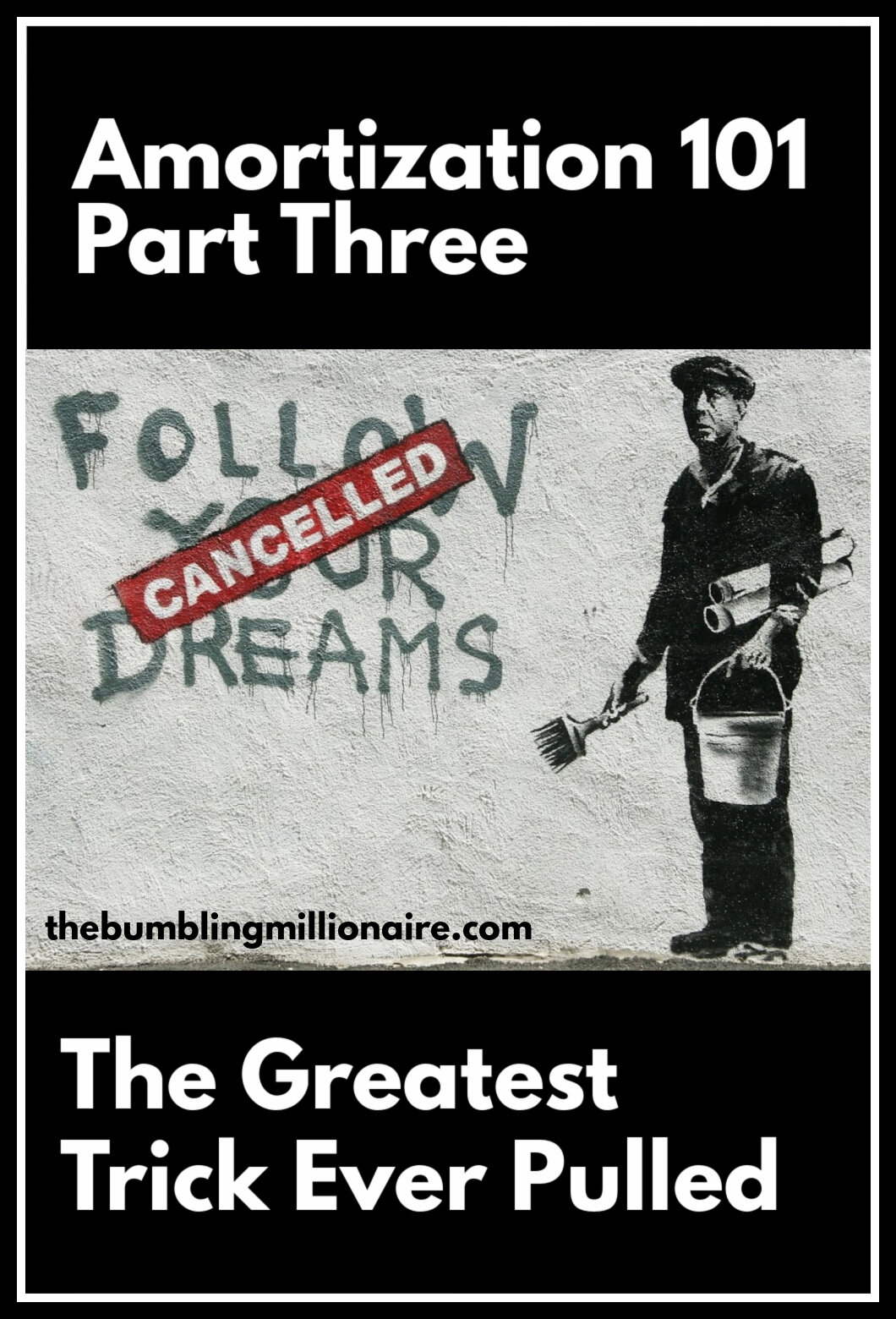Is It Time to Keep Your Powder Dry?
/This post may contain affiliate links. Learn more by reading my disclosure.
In the days of muskets, soldiers carried gunpowder separately. To ensure that the powder would ignite when the need arose, the soldiers took special care to protect it from moisture. Anything that would dampen the powder could put the soldier’s life and, the lives of those around him, at risk.
The first time I heard the phrase, “Keep your powder dry,” was immediately after the market tanked in 2008. A real estate developer with a lot of experience said something to the effect of, “Now’s the time to keep your powder dry. There’s going to be a lot of opportunities very soon.”
I didn’t understand what he meant at that moment.
However, I do now.
Where Do You Make Your Money?
There’s a long-standing real estate maxim that you make your money in the buy. Essentially, if you don’t do your homework up front and you over pay for a building, there’s not much you’re going to do to improve your position. I wrote an earlier article, You Make Your Money in the Buy, which discussed this concept further.
Upgrading a property you've over-paid for just puts in more money and sets you into a worse financial position. This goes double for a residential house.
Bringing a high-quality tenant to a commercial building might get you more ‘even’ with the high-price you paid for it, but that’s a function of their tenancy. If they leave, the value of your building will drop substantially.
Even time won’t be your friend. Markets are cyclical. If you bought wrong, the market can turn against you later and you’ll find yourself with a property that is valued less than what you owe on it.
This is what happened during the Great Recession when 7 million Americans lost their homes.
Running with the Herd
Another experienced investor once told me, “When everyone is running toward the real estate market, go the opposite direction.” I looked for the origin of this advice and struck out. However, I think it’s one of the most important pieces of advice I’ve heard so far in my career.
When the average person starts seeing dollar signs in real estate (or the stock market) they want to get into the game. This brings out a lot of new investors, folks who have never thought about it before.
It’s the story of supply and demand. Suddenly, there are more buyers clamoring for product and the inventory tightens. The competition for property gets intense and prices are driven up. The steady, knowledgeable players begin to back away from the table.
Institutional buyers may still be in the market, but their decisions are made by people without skin in the game. Essentially, employees of large companies are willing to buy real estate investments at radically reduced returns compared to what individual investors would be willing to buy. An employee gets paid a salary while the investor gets paid a return. Two different income-earning processes which affect investing behavior.
In my market, which at best is secondary, property that has been listed for years is getting bought at a surprising clip and at astonishing capitalization rates (rates of return for investors).
For serious owner-users looking to open a new store or start or new business, they must decide to either jump in the market at its frenzy or forestall plans until the market cools.
I was chatting with an experienced broker last week who is having a monster year (ie. selling and leasing a lot of property). When I asked him his thoughts on the market, he thought it had the potential to continue for some time. However, he mentioned the behavior of investors that would send it sideways as "irrational exuberance" and said he was seeing a lot of it these days.
Timing the Market
You can’t time the market. Period.
If it was possible, everyone would do it and the entire dynamic of the world would change.
One ding-dong hits the market right and then he thinks he can time it forever. Don't listen to him. It doesn’t happen. Don’t even think that. If someone tells you they can predict the market, just remember Paul Rudd’s memorable quote from Anchorman.
60% of the time, it works every time - Paul Rudd, Anchorman
However, you don’t have to time the market. You just have to understand where you are within a market cycle. While there is a national market, there are also local markets. My market is different than your market and that's okay.
Typically, the market cycle looks like a rolling wave that crests, then falls, only to crest again. Depending on what you’ve read in the past, there can be four or five phases.
For John Burns Real Estate Consulting, Rick Palacios, Jr. wrote a 2016 third quarter housing summary which gave a fantastic overview of where we stood at the time. If you get a chance, give it a read. Below is an image from that article.
While there are four-phase discussions of the market, I really like the five-phase break-down. It gives a more precise picture of what's occurring.
If you look at Phase 3, that’s where the key can be found. I believe that most of the country is now fully stuck in the ‘Exuberance’ stage. Look at the points that are made:
- Capital flowing freely
- Surging prices and volumes
- Affordability getting worse and/or construction getting high
- Smart money taking some chips off the table
When multiple offers are being made on homes and prices are climbing rapidly in a normally steady market like mine, that tells me something is not right. Remember my friend's early comment about "irrational exuberance?" When you read or watch the news, are you picking up any signals of irrational behavior? You should. They're not hard to spot.
The general population didn’t reset their thinking immediately after the recession hit in 2008. It took a while for that reality to settle in. No one wanted to admit that the good times had ended. Even as the bad news initially rolled in, most folks denied it. People failed to adjust to the reality of what had occurred.
It’s happening again, but in reverse.
The general population has adjusted to the new normal and believes that this is going to go on forever.
I have a friend who, in his honesty, told me he is motivated by “comfort and convenience.” When I explained to him that I try adhering to some basic Stoic philosophies by practicing voluntary hardship occasionally, he thought I was a loon. Fair enough, it’s not for everyone.
However, the majority of our population is guided by the comfort and convenience mindset. It’s better to not think about unhappy things or deprive themselves of what they want now. Therefore, most aren’t looking down the road and seeing a possible downturn. Instead, they only see what’s right in front of them which are the good times. They will be shocked, dismayed and completely caught off-guard when the market turns, never expecting it to occur again.
Making Money When the Market Goes Up and Down
You can make money in both a good market and a bad market. It’s about where you buy on the curve. With the help of my 9 year-old's colored pencils, I cranked out an instructional curve.
If you look at the curve, you have two possible points of price equilibrium. In other words, where the price is equal going up the curve as it is going down the curve. This is important.
Buying during (#1) a period of recovery and early expansion is optimal. As you can see you have a lot of room on the upside of the curve if you decide to sell. You also have a lot of room on the downside of the curve if you want to sell then.
Purchasing during (#2) a contraction and the early downturn is risky, because sellers haven’t come to the realization yet that the market has changed. No one wants to admit they will get less for their property than they could have a year ago or even a few months prior. However, you are still in a decent position. You may have been able to buy the property at a bit lower price if you waited, but as I said before you can never truly time the market. Look at the room you have on the curve, though. Soon the market will recover and you will be in a solid position when it crests again and prices rise above your point of equilibrium on the next wave.
Buying during (#3) a period of exuberance is almost a sucker’s play. I say 'almost' because you can still get a deal out there, but you better know what you’re doing. You’re now playing at the top of the market. This is where experts win with very thin margins and suckers lose with no restrictions.
Waiting until the full downtown / recession, when it’s painful for sellers again, puts you in the trenches with the smart money. They've been patiently standing by, waiting and watching, as the suckers were buying property (and stocks) in a frenzy.
This is business and you keep your powder dry for a reason: so when you pull the trigger there’s actually something to ignite.







